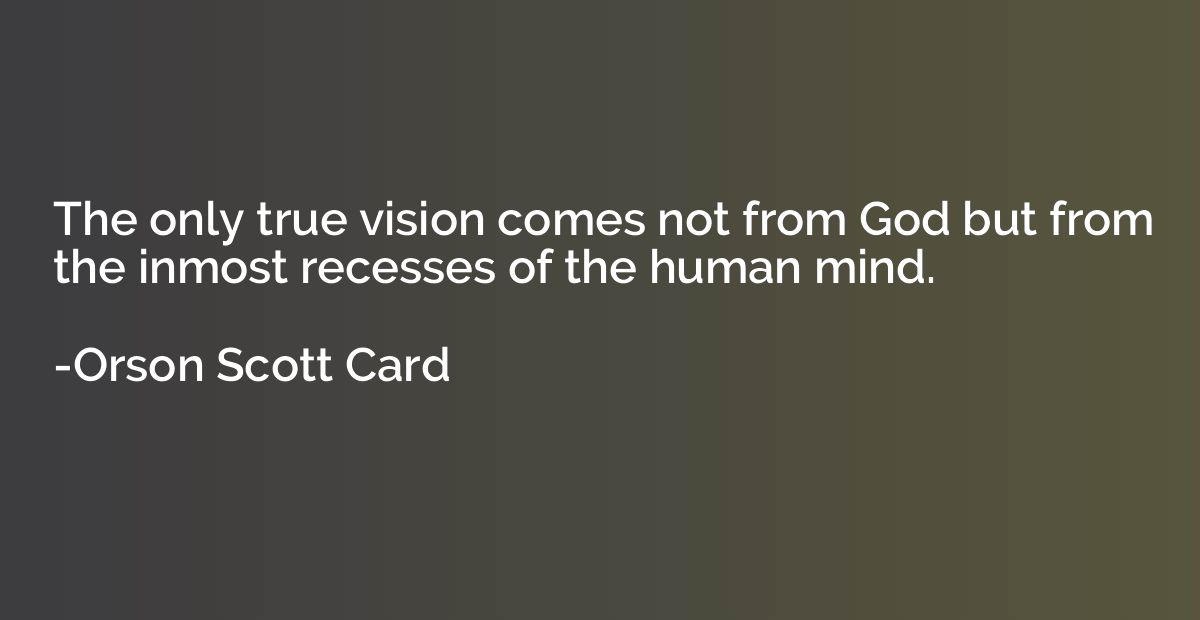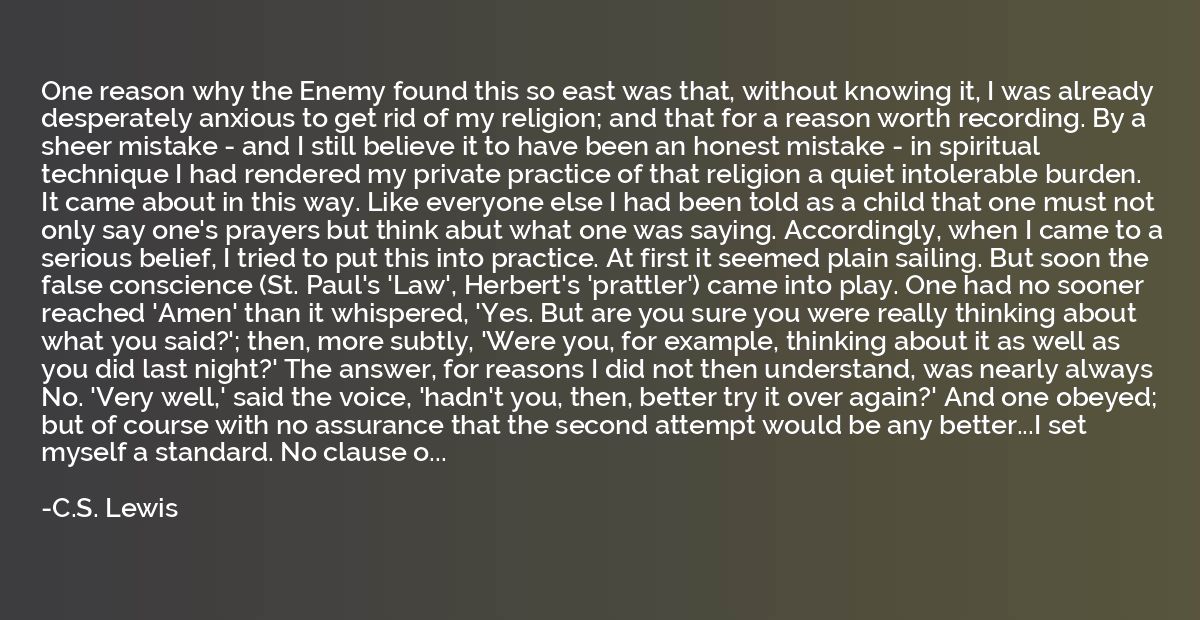Quote by Orson Scott Card
The only true vision comes not from God but from the inmost recesses of the human mind.

Summary
This quote highlights the belief that true vision or deep understanding does not solely originate from a divine source like God, but rather emerges from within the depths of the human mind. It suggests that individuals possess the capacity to cultivate their own insights, perspectives, and understandings through personal introspection and introspective exploration. By emphasizing the intrinsic capability of humans to develop profound visions, the quote stresses the significance of self-reflection and the power of human cognition in generating meaningful ideas and knowledge.














